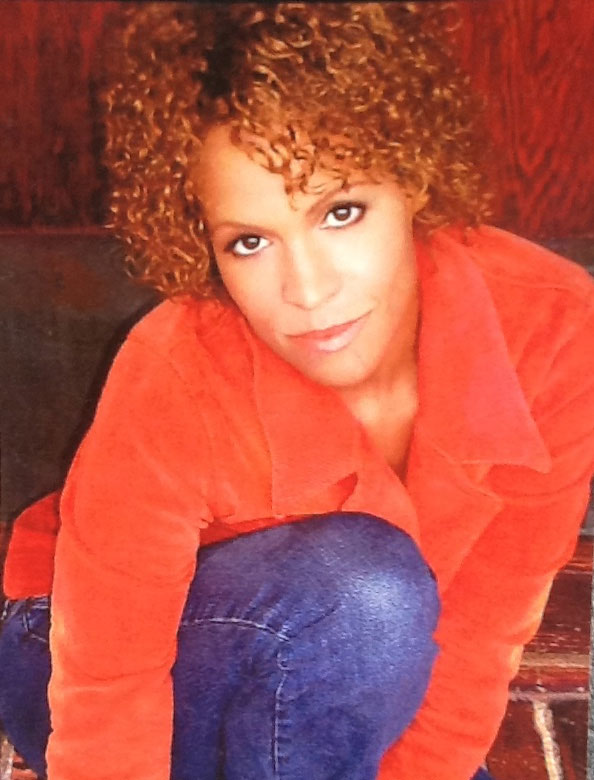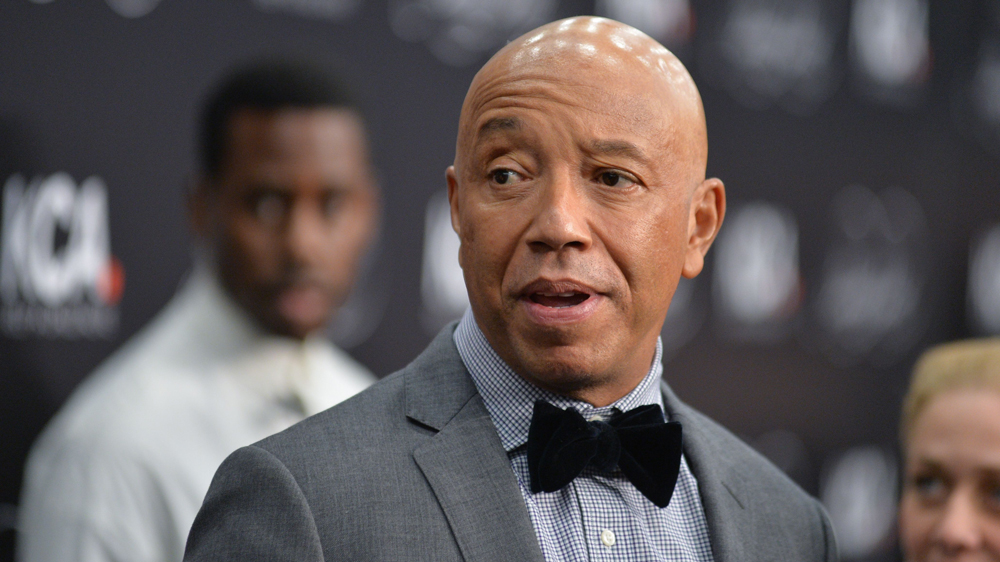Russell Simmons Accused of Rape by Granddaughter of Book Publisher W.W. Norton (EXCLUSIVE)
By Ramin Setoodeh
LOS ANGELES (Variety.com) – In November 1990, Alexia Norton Jones went on a date with Russell Simmons. She recalls that they had a pleasant night out, which ended with the co-founder of Def Jam Recordings inviting her to see his new apartment in downtown Manhattan. There, Jones says, Simmons pinned her against a wall and raped her. “It was such a fast attack,” she told Variety. “He pulled my dress up. I must have said no seven to 10 times.”
After she left, distraught and in shock, Jones claims that Simmons continued to pursue her, calling her at home and approaching her at social events. Jones, a 31-year-old aspiring model and actress at the time (she is the granddaughter of late book publisher W.W. Norton), was in the same social circle as Simmons. And Simmons was a friend of Jones’ father, Clarence Jones, who had served as an attorney and speechwriter for Martin Luther King Jr. After some years had passed, Jones forgave Simmons.
Last spring, almost three decades later, Jones filed a police report with the NYPD, from her home in Arizona, detailing the incident. Although her case fell outside the statute of limitations in New York for felonies, she wanted to stand with the other alleged victims of abuse by the music mogul and producer. She says she isn’t seeking any monetary damages.
In total, more than a dozen women have accused Simmons of sexual assault or rape (some of these stories were uncovered by investigations from The Los Angeles Times and The New York Times ). Simmons, who has denied any wrongdoing, stepped down from his companies in November, after a guest column was published in The Hollywood Reporter by the screenwriter Jenny Lumet, in which she alleged that he sexually assaulted her in 1991.
Simmons issued a statement to Variety, denying that he had assaulted Jones. “I’m deeply saddened by this story from Alexia,” Simmons said. “At no time did she share these feelings about her first sexual encounter with me, which took place roughly 28 years ago. I have taken multiple lie detector tests that affirm I never sexually assaulted anyone. Alexia and I dated, were intimate and attended multiple events together after she alleges the incident occurred in 1990. I considered her a friend for all these years and continue to have a warm relationship with members of her family. I believe we last spoke in 2006 when she called to express her disappointment over the fact that I had not attended an event honoring her father.”
Simmons’ representative also provided a written statement by his driver, Kenneth L. Jennings, who has worked for him since 1989. “I recall driving Mr. Simmons and Alexia Jones on about 10 to 12 dates in or about 1990,” the statement read. “Their relationship lasted approximately five months.”
Jones says that she never dated Simmons. She acknowledged that she called him more than 12 years ago, to ask why he hadn’t attended an event that honored her father. She never told her dad what Simmons had done to her. But she confided in her therapist, who confirmed to Variety that Jones spoke with her in the early ’90s about the alleged attack in their sessions. Here’s Jones’ story, from a series of interviews with Variety.
Alexia Norton Jones: As a young woman in my 20s, I never thought of myself as beautiful. I think there’s something wrong with you if you believe that. I was born with a happy spirit, so my parents allowed to be photographed as a child model. Once I was out of college, I started studying classic Chinese medicine, and I picked up some commercial modeling as a way to make extra money on the side. In the late ‘80s, I found some success as an agent for Hall of Fame star Dave Winfield’s book, “Winfield: A Player’s Life,” which became a bestseller.
But one of the most interesting and strange things about my life was these men. I’m not going to use their real names, but many of them are well-known in Hollywood. I walked out of the street and they were there. I had a friend who referred to them as my “bees,” because they were always buzzing around me. I honestly thought it was because I was nice. It’s not until now that I can objectively look back and say that I was beautiful. When you’re young, we have all our anxiety and doubt.
I went out a lot in New York. I wasn’t a big dancer. I didn’t drink. I didn’t do drugs. My crowd turned out to be clean. We were all out at the same nights at upscale clubs. I came from a well-known family, but we didn’t talk about that. My great-grandfather founded the Journal of Biological Chemistry. I’m the granddaughter of William Warder Norton of W.W. Norton book publishers. My father is Clarence Jones, who spent eight years as Martin Luther King Jr.’s attorney. When he married my mother Anne at the Waldorf Astoria in 1956, it was one of the first high society interracial weddings of New York City.
My first office job in the mid-’80s was as an executive assistant at Inter City Broadcasting Corporation. My father was under the influence of grief. My mother had gone missing in 1977 and she’d been found dead in a park near my boarding school. (The cause of her death was undermined.) In the early ‘80s, my dad made some bad business decisions that lead to his disbarment. So Percy Sutton gave him a job, and he brought me over. Everybody had titles there, like “Mr. Chairman” or “Mr. Vice President.” Call me naïve, but when I first saw Queen Latifah, I thought she was a real queen. She showed up in a head wrap and left such an impression on me.
would fly up the stairs at Inter City, as a young record executive. He wore the same clothing he wears now — plain sneakers and jeans. There was nothing impressive about it. He was being really diligent to get his records played on the station. He was trying to build his empire, but he was really like wallpaper. He was not anybody who stood out.
It wasn’t until a few more years, in the late ‘80s, that I started seeing him out. My life was in a good place. My first book was a success, and I had been taking meetings with Mike Tyson about the possibility of doing a memoir with him. Russell got my number and he began incessantly calling me. That man could call you seven or eight times a day. He would speak so quickly, sometimes you would not understand what he was saying. He would call many times just to say hello.
He had a beautiful girlfriend, who was a stunning woman. One afternoon, he invited me to the Pink Tea Cup. At that point, I was seeing someone else. I noticed Russell was very nervous, fidgety, sweaty, hanging out with a couple brothers who had drug problems. He darted out, and he left me there by myself.
I remember, sometime after that, my understanding was he wasn’t with his girlfriend anymore. So we go out in November 1990. This was our first date. There was no confusion about that. And I liked him. He wasn’t into this fitness thing back then. He was a little overweight. But I’m not attracted to skinny guys anyway, and looks aren’t the most important thing on a guy for me.
At the end of the evening, he wanted to show me his new apartment, which he said he’d bought from a well-known pop star. It’s weird what I can still recall from that night. I remember I was wearing these Diego Della Valle shoes that were new. I remember I was wearing a black stretchy dress that had a collar. I remember he had a terrific car with a driver. I remember going over to his place.
Within a few minutes, he got what he thought was amorous. What was shocking to me was that it wasn’t. It was one of these things, where he had so many hands on me. But he only has two hands. It began with us kissing. There was something about kissing him, his heart was racing. It seemed out of pace, like he wasn’t relaxed. My mind went to, “Is he on something?” I also thought, “How could I be such an idiot?” Here I am, I’m trusting him. I had been a survivor of sexual abuse as a young teenager.
I didn’t want to go further. It was such a fast attack. It was literally an attack. Because he was overweight, I remember thinking it was like being attacked by a flabby walrus. I remember being pushed up against a wall. He pulled my dress up. I must have said no seven to 10 times, and then I acquiesced. It was very fast. I would say it happened in less than 10 minutes.
This is what baffled me. I had willingly gone there. I went there and I would have been intimate with him. Why he did he have to take from me what wasn’t his? The other thing, which is very important, is that at the time I was living with an undiagnosed and very rare muscle disease. So I was suddenly weak. One of the things that’s so fascinating to me about the relationship with women who are misdiagnosed with an illness and victims of rape is that we are both told these things are in your head.
After the attack, the top of my dress was still intact. I pulled it back up into shape and went home. There was nobody to tell, because we had the same friends. I later confided in my therapist. This was my concern, to be honest with you: he didn’t use a condom. I was worried I had exposed myself to a sexually transmitted disease. The other concern was pregnancy. I was freaked out.
When I saw him out after that, I wouldn’t even look him in the eyes. I thought he was garbage. But he still had the compunction to call me. I became very depressed. It eroded my self-esteem. This is the worst message that it sends, that somebody could in a different circumstance like you but think you are worthless. And he can just take it from you. It’s like the murder of the soul.
The other important part to this story is race. Russell is a black man. We black women in the community didn’t want him to fail. We wanted him to succeed. As a black woman, we are told we have less value in society already. And then you have someone who is supposed to be a leader, and what he did to me. I was a gem. And he turned me into dirt.
I’m a victim, but I didn’t end up living like a victim. The other thing that you do is you have to forgive. I ended up forgiving Russell simply for one reason: time. I would run into him at social events decades later, and I saw a difference in him and the way he acted after he got clean. Russell doesn’t get to be my jailer.
I would have kept quiet forever. What made me come forward is his denials of violence toward other women. I don’t want any money from Russell. I’m not suing him. If you look at the women he allegedly assaulted, many of us have a similar look. It’s uncanny. Russell knew that the African-American community was behind him. There are so few black men who make it, we wanted him to succeed. Yet there was also this huge betrayal. He counted on this silence.


